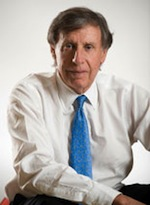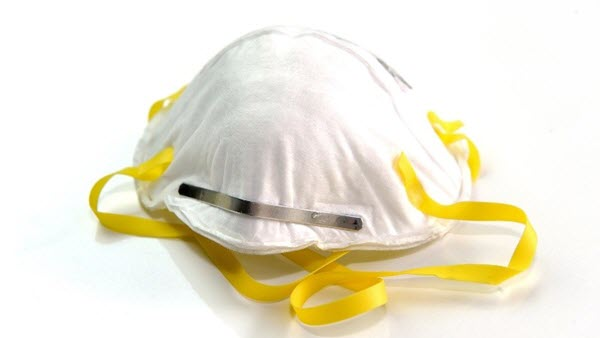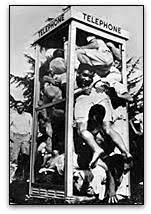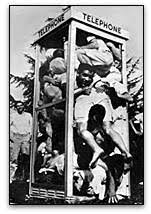 |
What this isn't.
|
From time to time, the UC Regents have taken positions on such issues of the day as propositions appearing on the state ballot. It is clear that the Regents, as a quasi-legislative state constitutional body, can represent the official position of the UC system.
From time to time, UCLA's top administrators have taken positions on behalf of the university on particular matters of public concern. A recent example is with regard to the transit line proposed to come through the Sepulveda Pass. UCLA has taken an official position that the line should have a station on campus rather than requiring passengers to switch to a shuttle bus or to other means of transportation to get from the line to campus. This official position of UCLA appeared recently both on the campus "newsroom" website with the headline "UCLA advocates for campus station on Metro’s proposed Sepulveda rail line," and in a letter to LA Metro signed by Michael Beck, Administrative Vice Chancellor:
https://newsroom.ucla.edu/releases/ucla-advocates-for-campus-station-sepulveda-rail-line
https://advocacy.assets.support2.ucla.edu/wp-content/uploads/2022/02/UCLA-STC-Scoping-Comments-FINAL_submitted.pdf
I think it's safe to say that no one doubts the ability of the Regents to take an official position on a ballot measure or the ability of the Administrative Vice Chancellor to represent the view of UCLA on a transit station. But what about official units of the university?
Yours truly notes this matter because he recently received an email sent out on several official campus emailing lists by two units of UCLA on behalf of those units.* The first line reads:
"The UCLA International Institute and Center for European and Russian Studies (CERS) condemn Russia’s invasion of Ukraine..." The email is signed by Cindy Fan, Vice Provost, International Institute; Laurie Hart, Director, Center for European and Russian Studies, and Marjorie Orellana, Associate Vice Provost, International Institute.
I suspect that most readers of the email would agree with the sentiment expressed in that particular statement. But the question is whether official units should be expressing such sentiments as opposed to the individuals connected with those units. When unit of the university says it has a position as a unit, does that mean that every individual connected with that unit agrees? Every faculty member? Every staff member? Every student? It surely seems to imply such a uniform view of everyone connected.
This issue came up before the Regents' January 2022 meetings in public comments with regard to a "Statement of Solidarity with Palestine" that has been posted on the official website of the UCLA Dept. of Asian American Studies since last May. In response, several Regents asked that UC policy on units of the university taking official positions on behalf of the entire unit be put on the agenda of a future Regents meeting.**
Here is the problem: When departments or units of the university take official positions as departments or units, the effect may be coercive on anyone who might dissent. It may act to repress dissent. Are junior untenured faculty who may have different views likely to object to the views of senior faculty? Are PhD students, who will need recommendations for future jobs from those senior faculty, likely to object? Staff employees? Non-ladder faculty who need to have their contracts of employment renewed regularly? What about individuals who might be thinking of applying for positions as unit faculty or in some other capacity? What about students who may be thinking of enrolling in courses or applying for degree programs? In short, when units of the university make official pronouncements, the effect can be coercive or exclusionary.
Note that what is not at issue is whether individual faculty or others within such units can express views, however controversial, on events of the day in lectures, conferences, publications, op eds, blogs, tweets, etc. Academic freedom protects and encourages expressing such viewpoints. The issue is whether units of a public university, as official units, should make unit-wide pronouncements on issues of the day seeming to imply that everyone affiliated with those unit holds - or should hold - the same opinion.
What are people who click on the websites of units of the university or receive mass emails from units of the university expecting? Presumably, they are looking for such things as faculty biographies, lists of upcoming programs or lectures, information on degree requirements, etc. And when dramatic news events occur, such as the Ukraine invasion, they may well be looking for what Professor X, who has expertise in that subject matter, has to say about such events as an individual.
That is the opinion of yours truly as an individual.
===
*The email was sent out on "cers-grads@lists.ucla.edu" <cers-grads@lists.ucla.edu>, "cers-fac@lists.ucla.edu" <cers-fac@lists.ucla.edu>, and "cers-all@lists.ucla.edu" <cers-all@lists.ucla.edu>.
**https://asianam.ucla.edu/2021/05/21/asian-american-studies-departments-statement-of-solidarity-with-palestine/. The Regents' January meetings are at:
https://archive.org/details/regents-board-health-services-committee-national-laboratories-committee-1-18-22, https://archive.org/details/regents-board-finance-and-capital-strategies-committee-1-19-22, https://archive.org/details/regents-public-engagement-and-development-committee-1-19-22, https://archive.org/details/regents-board-1-20-22. Full disclosure: Yours truly was one of the public commenters.




























